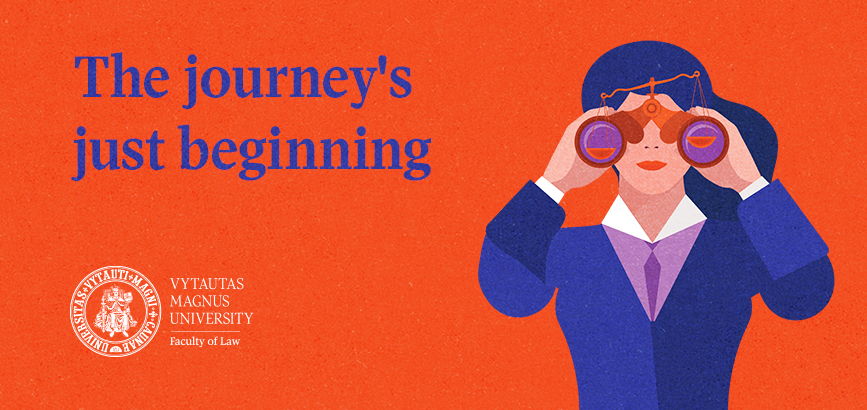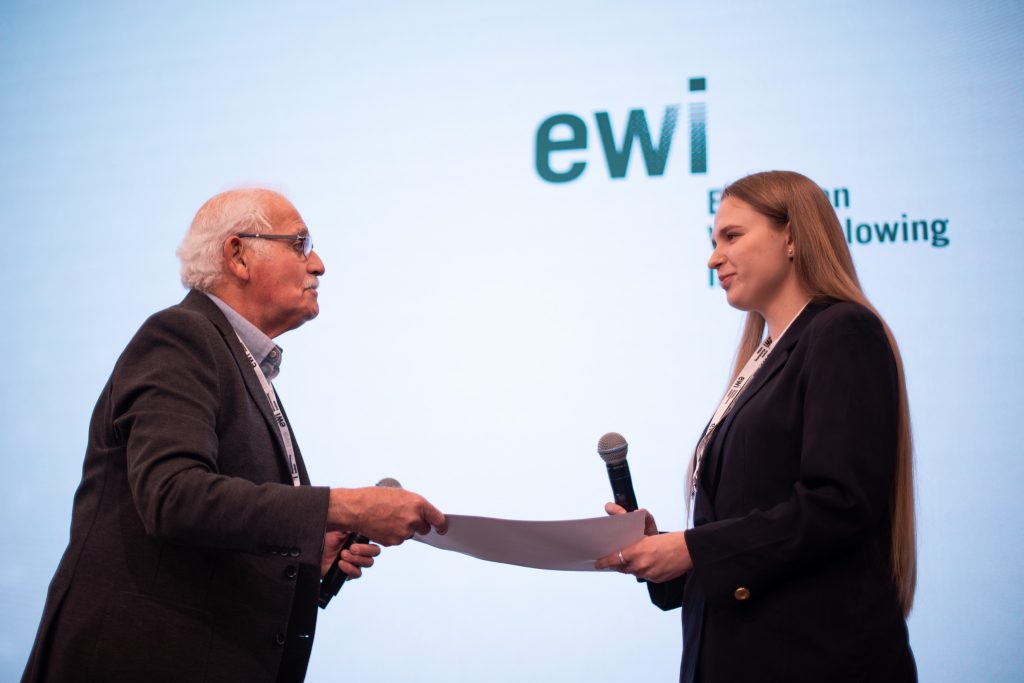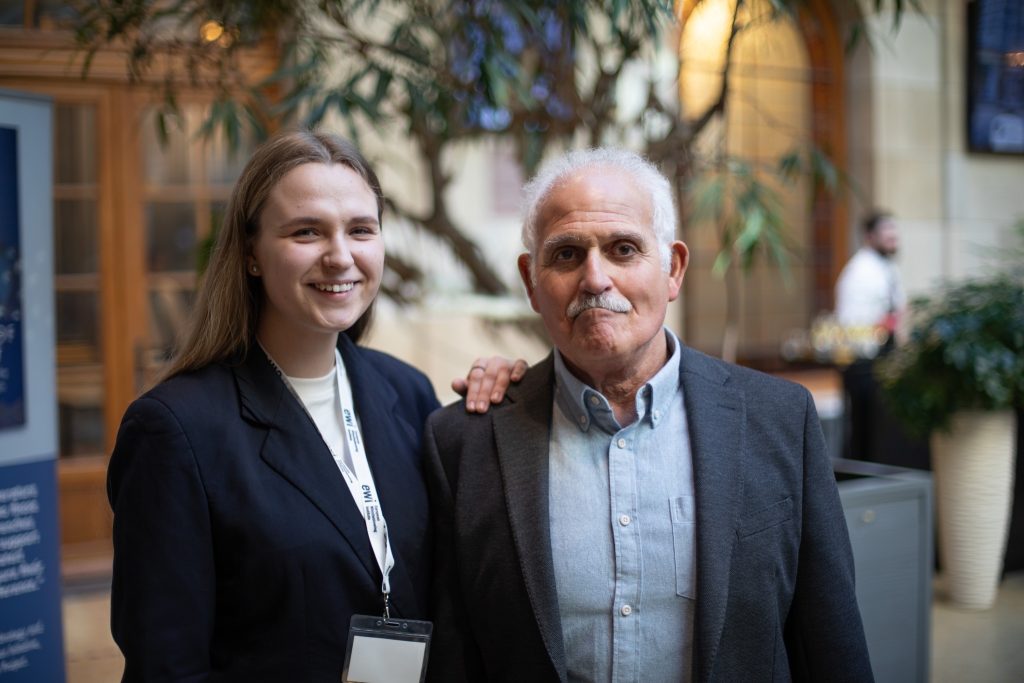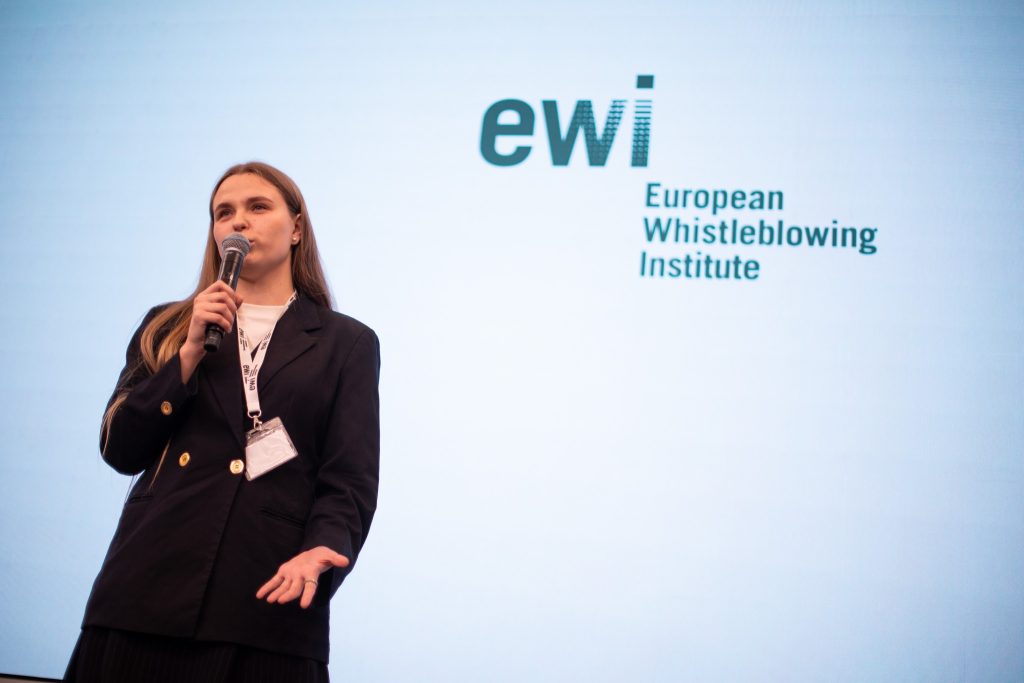The Master’s Thesis of Vytautas Magnus University (VMU) Faculty of Law graduate Eglė Vaizgėlaitė won two awards. Last year, it was recognized in the competition for the best master’s theses by the Supreme Court of Lithuania, and this year it received the prestigious Lewis Master Thesis Award, which was presented to her in Brussels by Professor David Lewis himself.
An Award with an Important Mission
Established for the first time this year by the European Whistleblowing Institute (EWI), the award highlights outstanding academic achievements and honors D. Lewis’s pioneering contributions. Professor Lewis is the coordinator of the International Whistleblowing Research Network, a legal scholar whose work has shaped the understanding of whistleblowers, their protection, and their contribution to transparency as both a legal and moral foundation.
“When I began examining the protection of whistleblowers in the United Kingdom in the 1990s, I never dreamed of a day like this, when undergraduate and master’s students would be studying whistleblower protection law. I hope this award will encourage more people to bravely report wrongdoing. This research will be very valuable and will help improve whistleblower protection, as that is precisely what this award is about,” said scholar D. Lewis.
Eglė Vaizgėlaitė and David Lewis (photo of the organizers)
“This was an invaluable experience that allowed me to meet leading scholars and legal professionals in the field of whistleblower protection from all over Europe,” the awardee shared with delight.
E. Vaizgėlaitė’s thesis, titled “The Issue of Exempting Whistleblowers from Criminal Liability in Lithuanian Criminal Law,” was recognized for its originality, critical perspective, and the relevance of the chosen topic. At the Supreme Court of Lithuania’s competition for the best master’s theses held in September 2024, the VMU graduate was awarded not only for the best thesis but also for the most creative presentation. To explain the complexities of the whistleblower institution, she used chemical reagents.
The Importance of Finding Inner Motivation
“They say that law is a dry science, that there is no creativity in it. But such statements usually come from those who have never encountered law or have only done so very superficially. In reality, law is not just about rules and norms. It is the ability to analyze, to ask questions, to critically assess situations, and to seek solutions,” she said confidently.
According to her, writing a thesis may at first seem exhausting, even intimidating—long lists of sources, numerous scholarly texts, analysis of legal acts and cases, methodological requirements, and so on. But everything changes when you start to see it not as a ‘mandatory assignment,’ but as an individual research project—an opportunity to delve into what interests you, to ask questions, to build arguments. In other words—a creative process.
“When choosing a topic, I knew I wanted to write with meaning. The beginning of my thesis was also not easy (as is the case for other students)—I had to read a lot of material to identify relevant legal problems and to understand the foundations of legal regulation. But it is precisely that moment, when you finally discover a topic that truly ‘hooks’ you, that changes everything. Then, inner motivation appears,” said the VMU Faculty of Law graduate.
A Thesis—Not an Obligation, but an Opportunity
In her thesis, E. Vaizgėlaitė raised questions of human rights, loyalty to the interests of the state, and moral responsibility—issues that are especially important today not only in Lithuania but throughout the democratic world. The graduate sees the whistleblower institution as one of today’s forms of civic expression. Through her research, she provided relevant insights that could help empower Article 39-2 of the Criminal Code and understand the institution not as a Sisyphean task, but as a Promethean form of awakening the nation.















